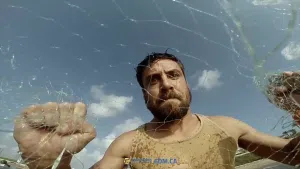Tech giants Meta and TikTok are facing a half-billion-dollar legal challenge in Brazil over allegations of failing to protect minors on their platforms. The lawsuit, which was filed by the Brazilian Public Prosecutor’s Office, accuses the companies of not providing adequate protection for children and teenagers using their services. According to the lawsuit, both Meta and TikTok have reportedly violated laws designed to protect minors from harmful content and privacy breaches.
This legal challenge marks a significant development in the ongoing debate over the responsibility of social media platforms in protecting young users. The case highlights the potential risks faced by children and teenagers who are increasingly using these platforms as a primary source of entertainment and social interaction. With concerns growing over the potential impact of online content on young minds, the lawsuit signals a push for greater accountability from tech companies in safeguarding minors.
Meta, the parent company of Facebook and Instagram, has come under fire in recent years for its handling of user data and privacy issues. The lawsuit in Brazil adds to the mounting legal challenges faced by the tech giant, as governments around the world seek to hold tech companies accountable for their actions. TikTok, a popular video-sharing platform among young users, is also facing scrutiny over potential risks to minors, with concerns raised about the platform’s impact on mental health and well-being.
The lawsuit in Brazil seeks damages of up to half a billion dollars from Meta and TikTok, in addition to requesting that both companies implement stronger measures to protect minors online. The legal challenge underscores the growing pressure on tech companies to address the vulnerabilities faced by young users on their platforms, and to take more proactive steps in ensuring their safety and well-being. As social media continues to play an increasingly central role in the lives of children and teenagers, the need for greater oversight and protection measures has become a pressing concern for regulators and policymakers.
The legal action in Brazil represents a significant test for Meta and TikTok, as they navigate the complex landscape of online regulation and user protection. The outcome of the lawsuit could have far-reaching implications for how tech companies are held accountable for the impact of their platforms on young users, and could set a precedent for future regulatory actions in other jurisdictions. With the case drawing attention to the potential risks faced by minors online, there is a growing urgency for tech companies to reevaluate their policies and practices in safeguarding young users.
The lawsuit in Brazil comes at a time of increasing scrutiny over the influence and reach of tech giants in shaping the online experiences of users, particularly young people. As concerns mount over the potential harms of online content and social media platforms, regulators and lawmakers are taking steps to hold tech companies accountable for their actions and to ensure the protection of vulnerable users. The legal challenge facing Meta and TikTok in Brazil is just one example of the growing push for greater transparency and accountability in the tech industry, as stakeholders seek to address the complex challenges posed by the digital age.
In conclusion, the lawsuit against Meta and TikTok in Brazil highlights the growing concerns over the protection of minors on social media platforms, and the need for tech companies to take more proactive steps in safeguarding young users online. As the case unfolds, it will be crucial to see how both companies respond to the legal challenge and what measures they put in place to address the vulnerabilities faced by children and teenagers on their platforms. With regulators and policymakers increasingly focused on the impact of social media on young users, the outcome of the lawsuit could have significant implications for how tech companies are held accountable for their actions and the protection of minors in the digital age.




